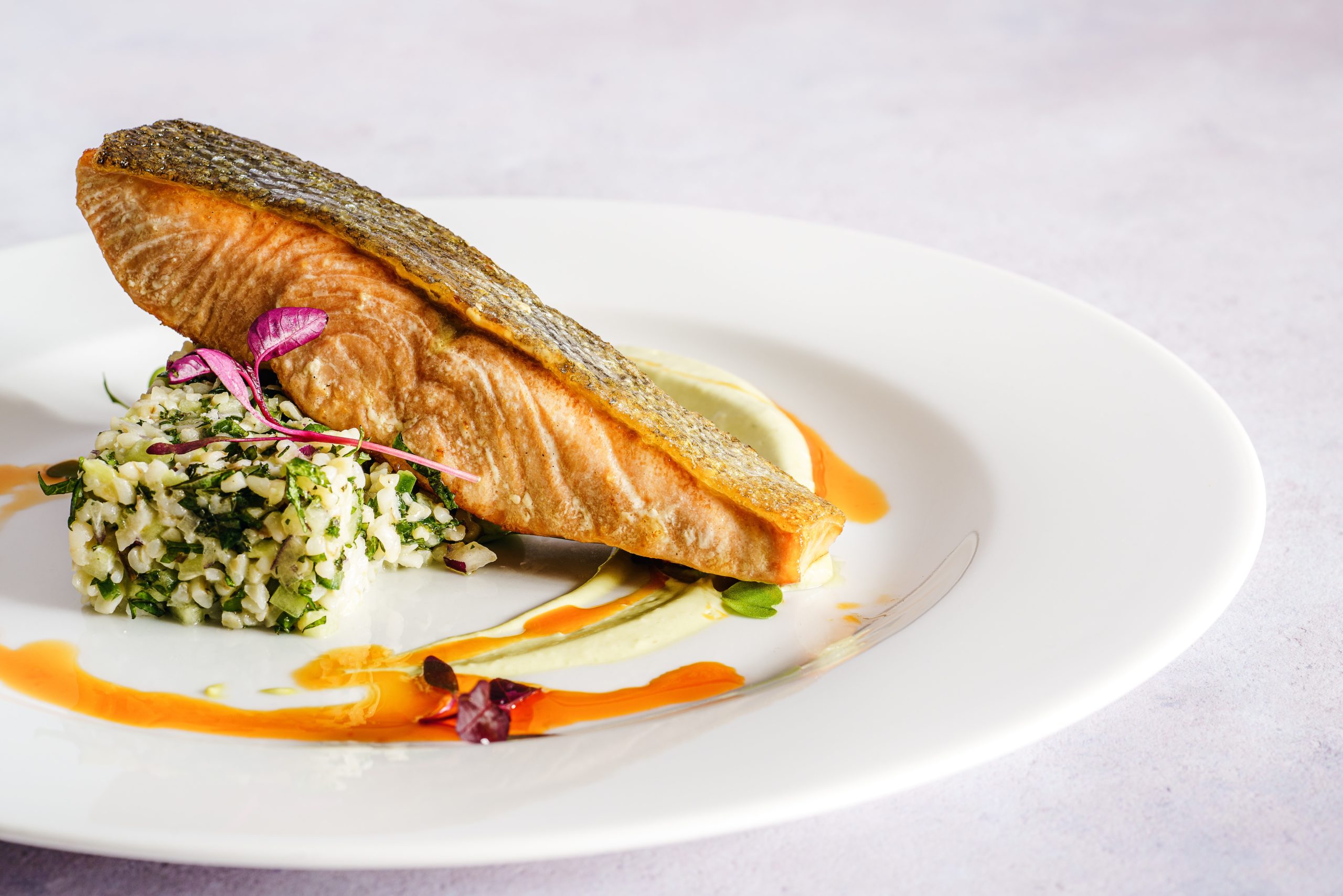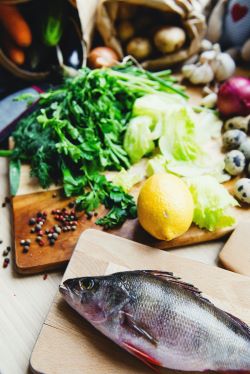While a diet filled with beef and poultry seems to be the norm in the US and many parts of the world, it is not the traditional omnivore diet. Beef, pork, and poultry products can lead to health issues, while the consumption of fish and plant-based proteins leads to health improvement. There are many reasons to switch from a more carnivorous diet to a pescetarian diet, but below are the most critical.
The Case Against Carnivores
People often make the argument that humans are designed to eat meat. You will indeed find canines in your mouth next to your incisors, and these sharp, pointed teeth are useful for tearing food. However, that is not an indication of a specific type of food, like red or white meat.
People are not carnivores; they are omnivores. Carnivores typically have claws and several sharp pointed fangs for tearing and ripping flesh from muscle and bone. Meat eaters also have a shorter intestinal tract for quick digestion, and they lack pores for sweating, usually perspiring through the tongue.
As omnivores, the human body evolved to hunt for food during daylight, requiring pores for perspiration. Because the human diet traditionally consisted of fish and plants, the intestinal tract is longer allowing time to absorb and digest plant-based proteins.
A diet rich in fish and plant-based foods - fruits and vegetables - is healthier and more natural to the human system, making the pescetarian diet among the most traditional on the planet. Fish contains minerals and vitamins essential for health, requiring supplementation if you do not eat it. Cutting red meat from your diet does not require the same precaution, suggesting that red meats are not essential to the human diet.
[insert page='Offer' display='content']
Eating Fish Rather Than Meat Is Healthier
Unlike other meats, fish does not come into contact with harmful chemicals or pesticides on the journey to your table. It also contains a generous amount of vitamins and minerals that are incredibly beneficial to a person's overall health. For example, most of the iron your body requires can be found in a pescetarian diet, as can the required protein and the addition of omega-3 fatty acids.
Because of the complex combination of vitamins and minerals, fish is considered a powerhouse food, reducing the risks of stroke, osteoporosis, diabetes, obesity, high blood pressure, heart disease, cardiovascular disease, and some types of cancer. A pescetarian diet's primary benefit is its dependence on the consumption of foods low in fats and oils but high in fiber.
The addition of fish to a primarily vegetarian diet is crucial to avoiding typical problems associated with strict veganism or vegetarianism, like iron deficiency or other forms of anemia. The consumption of fish helps to ensure adequate protein, iron, vitamin, and mineral levels in the diet, promoting well-rounded nutritional health.

Eating Fish Versus Other Meats Benefits the Planet
A study by the Smithsonian Institute concluded the need for grazing areas for livestock farms requires the destruction of a land area equivalent to seven football fields, meaning that meat production is a significant contributor to deforestation. In the US, animal agriculture has led to the destruction of over 260 million acres of forest.
Livestock also contributes to waste and toxic emissions. Animal agriculture is responsible for the production of more than 130 times the excrement produced by the human race.
Are you a meat-eater? Is there anything that will change your mind, making you switch to pescetarianism? Leave a comment below and keep the conversation going.


Thanks for the article. I am beginning to add more fish into my daily diet. I am going to add more after reading your article. I am primarily Paleo now but have pretty much weaned off of Beef and Pork unless its a small ingredient or an occasional treat. You can quickly become tired of chicken no matter how you prepare it, so experimenting with fish dishes is my next adventure.
Lucky me… I love fish. My favorites are salmon and tilapia. I eat other fish and try to stay away from farmed fish. The difference between farmed and natural salmon is huge, just looking at the color. Flavor and texture are also very different when it’s natural over farmed. Staying away from the toxic fish can be tricky – it’s not always noted at the store or restaurant whether fish are mercury free, for example.